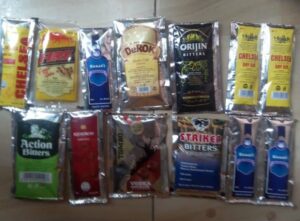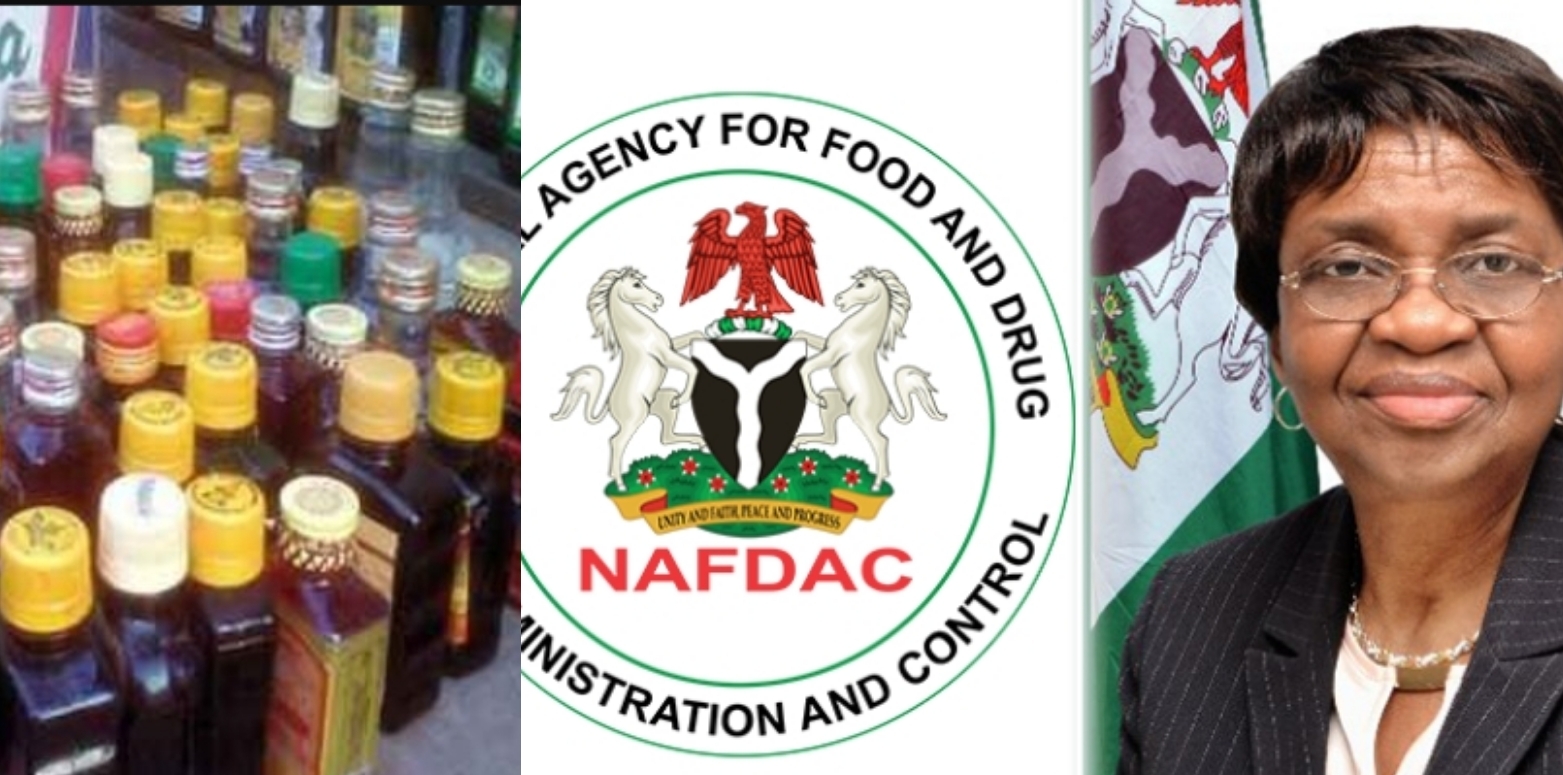…Insist on implementation of 2018 agreement with DIBAN
By Ezurike Ugochukwu
The National Agency for Food and Drug Administration and Control(NAFDAC) said it will not go back in the implementation of ban on sachet and PET bottle alcohol.
The Director-General of NAFDAC, Prof. Mojisola Adeyeye, handed down the warning to manufacturers and distributors of alcoholic beverages while speaking last Sunday at the News Agency of Nigeria Forum in Abuja.
Adeyeye emphasised that alcohol in PET bottles has been banned, warned distributors and retailers to desist from selling and distributing the prohibited products.
 The DG referred to the ministerial ban and the agreement signed by the Distillers and Blenders Association of Nigeria(DIBAN) in 2018 as still subsisting .
The DG referred to the ministerial ban and the agreement signed by the Distillers and Blenders Association of Nigeria(DIBAN) in 2018 as still subsisting .
The agreement, which introduced a phased withdrawal process, has now reached its final stage to ensure the complete removal of these products from the market as was agreed to end 31 January, 2024.
She explained that NAFDAC stopped registering and renewing licences for such products in 2018, giving manufacturers sufficient time to exhaust their stock and cease production.
She added that enlightenment campaigns and stakeholder engagements have been conducted to encourage compliance with the ban.
Adeyeye expressed concern about alcohol consumption among teenagers and young adults, highlighting that sachets make alcohol cheap and easily accessible, with potentially devastating consequences.
She reaffirmed the agency’s commitment to protecting public health through strict regulatory measures.
PET is an acronym that stands for polyethylene terephthalate. PET bottle for alcohol is a type of miniature plastic that’s frequently used to make containers for alcohol,
On NAFDAC website it stated that based on the 2018 recommendation, producers agreed to reduce production of alcohol in sachets and small volumes by five per cent with effect from January 31, 2022, towards a final phasing out by January 31, 2024.
The agency expressed commitment not to extend the validity of licences in the affected category of products beyond the 2024 date.
The agency frowned that people most at risk with easy access to small sizes of alcoholic beverages are the under-aged and operators of commercial vehicles and bikes, who can stash their vehicles’ pigeon holes or pockets with a handful of sachets.
It however cited the World Health Organisation’s report that children who consume alcoholic beverages are more likely to resort to drugs, suffer injuries and engage in harmful sexual behaviour.

 Business5 years ago
Business5 years ago
 News6 years ago
News6 years ago
 Crime2 years ago
Crime2 years ago
 News1 year ago
News1 year ago
 News5 years ago
News5 years ago
 Football6 years ago
Football6 years ago


 The DG referred to the ministerial ban and the agreement signed by the Distillers and Blenders Association of Nigeria(DIBAN) in 2018 as still subsisting .
The DG referred to the ministerial ban and the agreement signed by the Distillers and Blenders Association of Nigeria(DIBAN) in 2018 as still subsisting .















